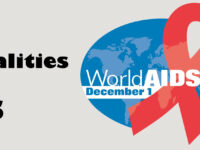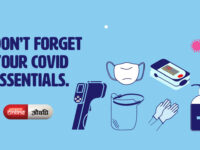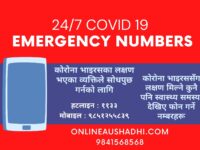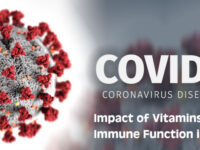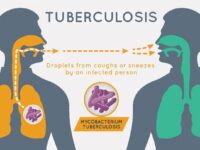Om P. Ganda, MD, at Joslin Diabetes Center, offers seven helpful tips for preventing heart disease.
If you have diabetes, heart disease can be a serious concern. In fact, cardiovascular disease leading to heart attack or stroke is by far the leading cause of death in both men and women with diabetes, says Dr. Ganda, a board-certified specialist in Internal Medicine, Endocrinology and Metabolism, and Clinical Nutrition, a Senior Physician in the Section on Adult Diabetes at Joslin, and an Associate Clinical Professor of Medicine at Harvard Medical School. “The good news is that there are steps to take to reduce your risk for heart disease if you have diabetes,” says Dr. Ganda.
1) Control your weight.
One of the most important things you can do if you have diabetes is maintain a healthy weight. If you are overweight, talk to a registered dietitian about healthy ways to lose weight.
2) Take responsibility for your health.
Cardiovascular disease is the major cause of death in America, accounting for 34 percent of deaths, many suddenly and almost all of them premature. This is down from 40 percent just four decades ago, mainly due to treatment of common risk factors. If you have diabetes, your risk increases dramatically. The best prevention against heart disease and stroke is to understand the risks and treatment options. The greatest risk is ignorance or misinformation. The first step is to take responsibility for your health.
3) Know your risks.
The most influential risk factor for cardiovascular disease is age – the older you are, the greater your risk. The second is your genetic make-up. Although everyone is excited by the scientific progress in genomics research, conclusive gene tests are still in their infancy. But, as I tell our medical students, “A good family history is a poor man’s gene test.” We have long known that if your parents, grandparents, or other relatives were afflicted with or died of heart disease, diabetes or stroke, your risk is much greater.
4) Don’t smoke or expose yourself to second-hand smoke.
The evidence is overwhelming that cigarette smoking and second-hand exposure to smoke increases the risks of heart disease, lung disease, peripheral vascular disease and stroke.3) If you already do, make plans to begin a smoking cessation program. “Nicotine narrows and restricts blood vessels; diabetes will also do the same thing to your blood vessels.. You can’t change having diabetes. But you can stop damage caused by nicotine,” says Dr. Ganda.
5) Maintain a healthy blood pressure.
High blood pressure, called hypertension, is known as “the silent killer” as it goes without symptoms in most individuals. High blood pressure causes wear and tear of the delicate inner lining of your blood vessels. The higher your blood pressure (BP) the greater your risk. The risk begins to increase from a pressure of 115/70 mmHg and doubles for each 10 mmHg increase in systolic (the larger number) and 5 mmHg increase in the diastolic (the smaller number). Heredity and increasing age raise the risks. Measuring blood pressures at home reflects more accurately your risk than having the blood pressure taken at a physician’s office. It is worth the investment to get a cuffmeter.
6) Monitor your cholesterol (blood lipids).
Abnormal or high blood lipids (fats) are a major contributor to cardiovascular disease. Your blood lipids include the LDL (bad cholesterol; remember as “Lousy cholesterol”), HDL (good cholesterol; remember as “Healthy cholesterol”) and triglycerides. The lower your LDL and the higher your HDL, the better your prognosis. The amount of cholesterol in your blood is determined mainly by three factors: the amount produced by the liver (this is largely genetic), the amount absorbed from the intestinal tract (some from what you eat, but a lot more from cholesterol produced by the liver and excreted into the digestive tract) and, finally, age – your cholesterol increases with age. If you are at risk, medication is almost always necessary to lower the LDL or to raise your HDL. The ideal ratio of total cholesterol divided by HDL cholesterol is 3.0. If higher, you might need diet as therapy. The problem with diet is that, in general, it can only decrease total blood cholesterol by about 10 percent. If you have a strong family history or elevated Lp(a) (a rare abnormal cholesterol that increases the risk), drug therapy is usually needed.
7) Limit your calories.
Fad diets do not work. If any of them did, we all would be on THAT one, wouldn’t we? The obesity rate in Americans is alarming, contributing to a near epidemic of diabetes, which is a cardiovascular disease. If you have diabetes, your risk is the same as someone who already had a heart attack. Obesity is caused by consuming more calories than your body burns. Abdominal obesity is the major risk. Portion sizes and the amount of sugars in the American diet have dramatically increased over the past few decades. At the same time, the daily amount of exercise has been decreasing. It is good advice to “drink slim” (water, tea, coffee). Use portion control before you start eating and push away from the table before you are “full.”
8) Get regular physical activity.
There is a significant body of research that proves the myriad cardiovascular benefits of regular physical activity (that goes beyond weight loss). Start off slowly, and build a plan that works well for you and meets your needs. The Joslin Diabetes Center offers one-on-one consultations with clinical exercise physiologists that are covered by many insurance providers. These sessions are considered diabetes education—not training sessions—and can start you on the path toward physical fitness.
9) Pick your pills wisely.
There is a great interest in alternative medicine and understandably so, because patients want to be empowered to take responsibility for their own health. However, many take alternative medicines because of the way they are marketed. The mere fact that a substance is “natural” does not prove its health benefit. After all, nobody in their right mind would take arsenic simply because it is “natural.”
10) Reduce stress.
Stress contributes to cardiovascular disease and, if severe, can cause a heart attack or sudden death. There are plenty of options that help reduce stress, such as regular exercise, adequate sleep, striving for a good marriage, laughing, volunteering or attending religious services. Watching TV generally does not relieve, but can aggravate stress. Also, try to avoid situations and people who make you anxious or angry.
11) Stay informed: Science changes constantly.
The only constant is change. This is especially true in medicine as new techniques and new insights develop constantly. Do not believe every piece of “scientific information” you find in the media or advertisements. An overwhelming number of research studies that make it into scientific publications are poorly designed or yield data that are not representative, e.g., due to a lack of a sufficient number of participants. Keep in mind that many studies are financed or sponsored by individuals or companies with a vested interest in gaining favorable results. The situation can be especially confusing when scientific studies yield different or even contradicting results, and this happens quite often.
12) Maintain tight control over glucose.
Tight control can prevent many complications from diabetes and also protects your heart. Shoot for an A1C reading of less than 7%.
Sources
http://www.joslin.org/info/7_tips_for_preventing_heart_disease.html
http://heart.arizona.edu/heart-health/prevent-heart-attacks/10-tips
https://www.google.com.np/search?q=images+heart+attack&biw=1366&bih=643&tbm=isch&imgil=Q35DKRc6kfyHkM%253A%253BCSL0DO7VhjiUwM%253Bhttp%25253A%25252F%25252Fwww.webmd.com%25252Fheart-disease%25252Fguide%25252Fheart-disease-heart-attacks&source=iu&pf=m&fir=Q35DKRc6kfyHkM%253A%252CCSL0DO7VhjiUwM%252C_&usg=__Gpz_pmdvy7lgx6v0cYM_4ejNDDM%3D&ved=0ahUKEwjemZvykNHJAhUGI5QKHYg2DeAQyjcIKQ&ei=T1ppVp62G4bG0ASI7bSADg#imgrc=Q35DKRc6kfyHkM%3A&usg=__Gpz_pmdvy7lgx6v0cYM_4ejNDDM%3D


